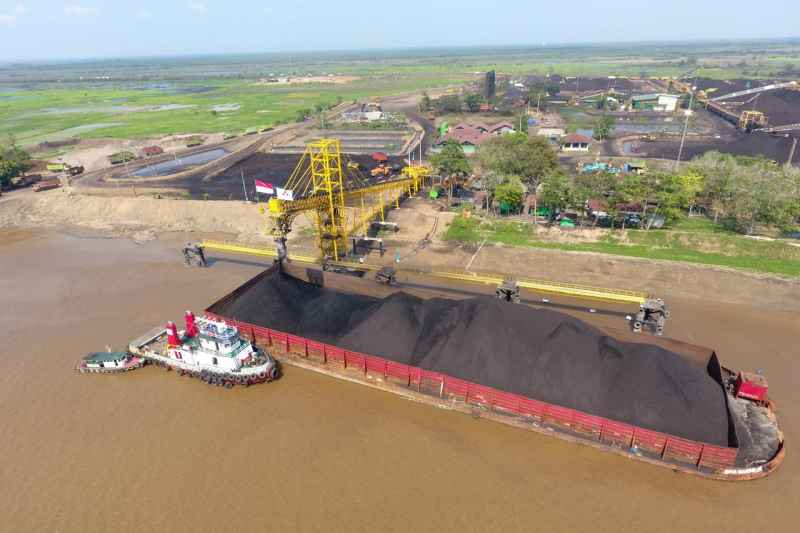Indonesia’s New Coal Export Policy: HBA Implementation and Industry Challenges
By: Admin01 | Edited by: Admin01
Friday, 28 February 2025, 5:37 PM
 Indonesia’s New Coal Export Policy: HBA Implementation and Industry Challenges
Indonesia’s New Coal Export Policy: HBA Implementation and Industry Challenges
 Indonesia’s New Coal Export Policy: HBA Implementation and Industry Challenges
Indonesia’s New Coal Export Policy: HBA Implementation and Industry Challenges
Starting March 1, 2025, Indonesia’s coal exports will undergo a significant shift as the government mandates the use of the Harga Batubara Acuan (HBA), a coal reference price set by the Ministry of Energy and Mineral Resources (ESDM). This policy aims to strengthen Indonesia’s sovereignty in determining coal prices globally, but its abrupt implementation has sparked concerns among industry players. With technical regulations still pending and stakeholders questioning the readiness of the new system, the policy’s success hinges on balancing national interests with practical challenges faced by coal exporters.
The HBA, Indonesia’s coal benchmark price, has long been used domestically to calculate royalties and taxes. However, its application to export contracts marks a bold step toward asserting control over pricing in the global market. ESDM Minister Bahlil Lahadalia emphasized that the policy reflects Indonesia’s desire to break free from international price dependencies:
“Our coal reference prices have been controlled by other countries. We must have independence and nationalism. Our coal prices shouldn’t be dictated by others.”
Under Government Regulation (PP) No. 96/2021, the HBA is calculated based on calorific value and market mechanisms. The Ministry categorizes coal into four HBA tiers (HBA, HBA I, HBA II, HBA III), updated monthly. While this system ensures transparency domestically, applying it to exports introduces complexities, particularly for long-term contracts tied to international indices like Newcastle or Argus.
Despite the policy’s March 1 deadline, technical guidelines (Kepmen ESDM) had not been published as of February 28, 2025. This regulatory vacuum has left exporters scrambling to adjust contracts and pricing mechanisms.
1. Renegotiation Challenges
The Acting Executive Director of the Indonesian Coal Mining Association (APBI), Gita Mahyarani, highlighted that many existing export contracts—particularly those with Chinese buyers—are tied to international indices. Renegotiating these agreements to comply with HBA would require time and buyer buy-in.
“Buyers may question why Indonesia suddenly changes its pricing mechanism. We need a grace period to avoid contract breaches,” Gita explained.
2. Buyer Skepticism
Hendra Sinadia, Executive Director of the Indonesia Mining Association (IMA), echoed these concerns, noting that international buyers perceive the HBA as less transparent than globally recognized indices. At the 2nd China Coal Import and International Summit in Guangzhou, Chinese buyers reportedly expressed reservations about the policy’s sudden rollout.
3. Legal Ambiguities
Hendra also pointed to PP 96/2021, which stipulates that coal reference prices should follow international market mechanisms. While the HBA aligns with this for royalty calculations, its enforcement in exports creates ambiguity. “The HBA could conflict with existing laws if buyers reject it,” he cautioned.
In response to industry pushback, ESDM officials maintained that the policy’s implementation remains on track. Secretary-General Dadan Kusdiana asserted that socialization efforts had been carried out, including a February 26 briefing. However, stakeholders argue that a single session is insufficient for such a transformative policy.
Director-General of Minerals and Coal, Tri Winarno, acknowledged the challenges but emphasized adaptability:
“When new regulations emerge, businesses must adjust. Contract renegotiations are common in this industry.”
He also linked the policy to Indonesia’s need to stay competitive amid declining global coal prices, ensuring exporters don’t undercut domestic revenue.
Amid the upheaval, PT Titan Infra Sejahtera has emerged as a model of compliance. The company affirmed its commitment to following all regulations, including the HBA mandate and the 100% Domestic Market Obligation (DMO) for coal.
Titan’s adherence extends beyond pricing. The company aligns its corporate social responsibility (CSR) programs with ESDM Regulation No. 1824/2018, which requires mining firms to draft community development plans (Rencana Induk PPM). These efforts include infrastructure projects, healthcare, and education in mining communities.
“We strictly follow all government directives,” stated Yayan, a Titan representative. The company’s compliance reflects a broader trend among miners prioritizing regulatory alignment to maintain operational licenses and social legitimacy.
The HBA policy underscores Indonesia’s ambition to leverage its position as the world’s largest thermal coal exporter. However, its implementation faces three critical hurdles:
1. Timely Regulation Issuance
The delayed release of the Kepmen ESDM has created confusion. Exporters need clear guidelines on HBA calculation, contract adjustments, and dispute resolution mechanisms.
2. International Buyer Acceptance
Convincing buyers to adopt HBA requires diplomacy and transparency. The government must demonstrate that the HBA reflects fair market value, possibly by aligning it more closely with global indices.
3. Transition Support
A grace period, as proposed by APBI, would allow exporters to renegotiate contracts without penalties. Simultaneously, the government could phase in HBA, starting with new contracts while grandfathering existing ones.
Indonesia’s HBA mandate is a double-edged sword. While it promises greater control over a vital natural resource, its rushed rollout risks destabilizing a sector contributing significantly to GDP. For the policy to succeed, the government must address industry concerns through collaborative dialogue, clear regulations, and flexibility.
As Titan Infra Sejahtera demonstrates, compliance is achievable with preparation. However, the broader industry’s ability to adapt will depend on how swiftly ESDM bridges the gap between nationalistic aspirations and global market realities.